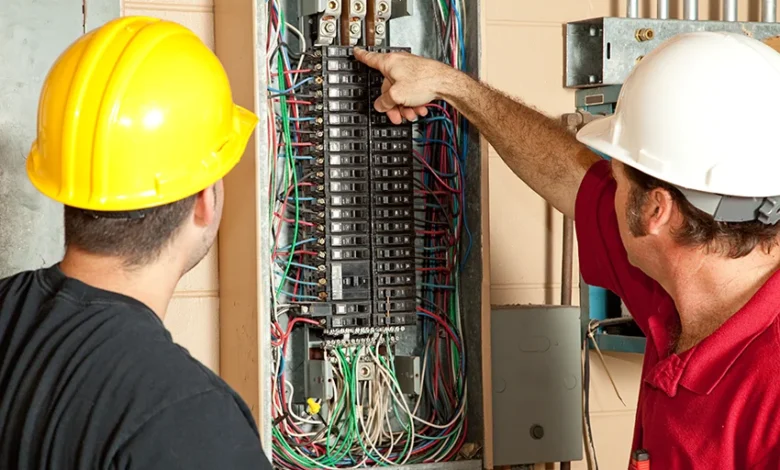Courses Needed as an Electrician’s Apprentice

Electrician apprentices complete various course requirements and certifications to become licensed to work. The specific programs may vary based on the state or local requirements, but there are a few general courses that provide the necessary knowledge and skills. Here are a few courses that you will need to take to complete an electrician apprenticeship:
General Courses
While a college degree is often not a requirement to become an electrician, certain general courses are helpful for various electrical processes. These courses include:
Algebra
Electrical work calls for a solid understanding of algebraic principles. Power, current, voltage, and other electrical aspects are calculated with the help of algebraic equations. Electrician apprentices should study algebra to boost their skills in the future. Understanding algebra can help future electricians correctly install and program electrical circuits.
Physics
Understanding basic physics concepts is helpful for electricians. Electrical circuits and other system components use certain laws of physics. Taking classes that teach physics principles will help apprentices in their future careers. They will be able to use their knowledge of physics to improve processes so that electrical systems run properly and use power efficiently.
Communication
Electricians will need to interact with customers and other business professionals. They need to be able to communicate about any issues they find or repairs that need to be made. Electricians may also be required to communicate regularly with engineers and architects when installing electrical systems in various homes and buildings. Learning proper communication skills is necessary for electricians to be able to understand and relay instructions and provide seamless interactions with customers and team members.
Business
Business courses may be beneficial for electrician apprentices, as these classes teach helpful skills that can improve work processes and productivity. Along with teaching about the basics of running a business, prospective electricians will be able to gain skills in time management and analytical thinking. Learning these skills will enable them to make quick decisions while working with complicated electrical systems. These abilities also allow apprentices to use their time efficiently so they can complete projects within the set timelines.
Electrician-specific Courses
Trade schools teach various classes specific to electrical careers. A few of these electrician-specific courses include:
Electrical Code
An electrical code is a set of rules for installing electrical systems in a building. Electricians must clearly understand these regulations in order to safely and effectively do their work. Failing to install electrical systems that are up to the set standards may result in fines or other penalties. As an electrical apprentice, students will carefully study how to safely install wiring patterns, circuit breakers, and any other electrical systems in residential and commercial settings.
Safety
Safety is a key aspect of electrician training. Electricians are regularly exposed to situations with fire and electrocution risks. Apprenticeship programs may include a course that outlines areas where electrical safety is necessary. In such a course, the apprentices will learn proper safety procedures and precautions they can take to avoid hazardous situations.
Wiring and Installation
Certain apprenticeship programs will require students to learn the proper way to install and wire electrical systems. Wiring involves connecting various electrical components so that a system functions correctly. A thorough understanding of proper installation techniques is required for safety and efficiency. Courses will teach students about the basics of electrical wiring, what each wire color means, the rules for connecting different types of wires, and more.
Hands-on Training
Many electrician apprenticeship programs require courses that provide hands-on training opportunities. In a controlled environment, students can safely work with electrical circuits and other components. This interactive approach allows apprentices to practice the skills they are learning in their other classes.
These hands-on opportunities may let students shadow certified electricians and watch how they install, repair, and adjust electrical systems. Many electrician programs want students to obtain a certain number of classroom and on-the-job training hours before they are able to graduate. Hands-on training classes will help students reinforce their classroom knowledge and practice specific tasks in a safe, supervised environment.
Get Started With Your Electrician Apprenticeship
Depending on the apprenticeship program, you may undergo some or all of the classes listed above. A certified electrician program should teach apprentices the skills they need to safely install and repair electrical components. General classes will also teach prospective electricians about basic skills they need to seamlessly run everyday business operations. Start your search for a reputable apprenticeship program today.




